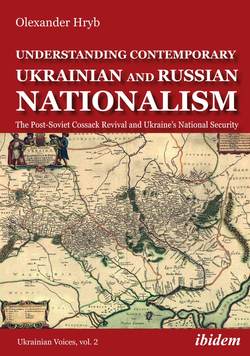Читать книгу Understanding Contemporary Ukrainian and Russian Nationalism - Olexander Hryb - Страница 14
На сайте Литреса книга снята с продажи.
2.1. Major Elements Within the Genesis of Nation, Ethnie, National and Ethnic Consciousness
ОглавлениеComparative research illustrates that despite little academic exchange between Western and Soviet social scientists, understanding of national identity was substantially similar. For instance, Anthony Smith’s argument about the nature of national consciousness is closer to the position of the Soviet theoretician Yulian Bromley than to the purely modernist approaches that currently predominate the western social sciences. On the other hand, Eastern European theorists, such as Miroslav Hroch or Valeriy Tishkov have developed modernist or “constructivist”" approaches.
The key terms explored are “nation,” “ethnic community” (ethnie or ethnos), “national consciousness” and “ethnic consciousness.” The term “identity” in this monograph is distinguished from “consciousness” in the following way. Identity represents consciousness at a certain period of time and qualitatively defined by this period. Consciousness is therefore a process; identity is a part of it. Identity is related to the past and future of consciousness as a process. In this way the term “identity” will be related, for instance, to a subject (bearer) of consciousness at a moment of time in a specific location. The reason for making this distinction is to capture such phenomena as situational identity, as distinct from consciousness as a process, a constant activity that one can lose rather than change (Waver 1993, Drobizsheva 1985). Where reference to a specific subject, time or place is irrelevant, or the process itself is the focus of discussion, the term “consciousness” will be used rather than that of “identity.”
